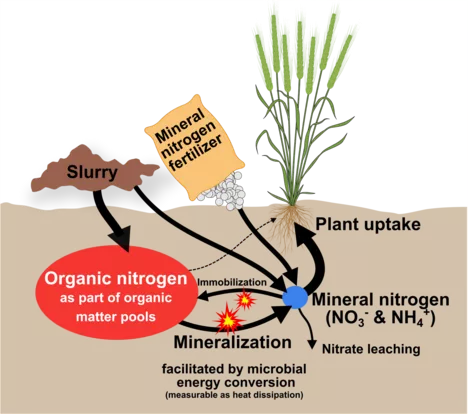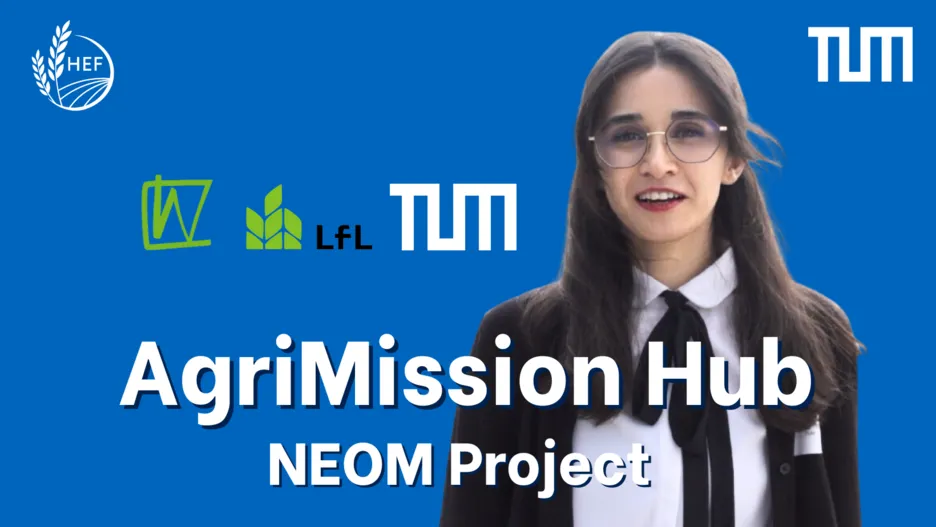NEOM
Inside the black box of N cycling: resolving N release from slurry to cropland soil through Energy fluxes and Organic Matter turnover - NEOM
Providing nitrogen (N) to crops is crucial for agricultural production, whereas excessive application of N to soil can harm the environment. The NEOM project addresses critical gaps in understanding N cycling in agricultural soil systems.
Project participants: Dr. Steffen Schweizer (Coordinator) (TUM), Prof. Dr. Ing. habil. Mirjana Minceva (TUM), Prof. Dr. Heuwinkel (HSWT), Dr. Martin Wiesmeier (LfL), Dr. Cennet Yildiz (TUM)
Project duration: 1 March 2024 - 31 Oktober 2025

Background
Providing nitrogen (N) to crops is crucial for agricultural production, whereas excessive application of N to soil can harm the environment. While the existing understanding of N uptake by plants on agricultural soils is mainly associated with inorganic N forms, most N in soils is present in organic forms (see figure). The plant-available N is therefore influenced by the conversion of organic N, coupling N dynamics with the cycling of soil organic matter (OM). The microbial-derived mineralization may induce energy limitations and restrict the process rates of for nitrogen cycling coupled to OM turnover, directly impacting ecosystem nutrient dynamics.
Thermodynamics provides a fundamental framework to understand and quantify such energy process limitations, considering the total entropy of different OM pools in agricultural soils. It is necessary to illuminate the ‘black box’ of (organic) N provision using a combination of approaches, from determining OM turnover to novel thermodynamic methods, to derive unprecedented insights on (organic) N cycling.
The project
The NEOM project addresses critical gaps in understanding N cycling in agricultural soil systems. It is led by a consortium of experts spanning soil biogeochemistry, biothermodynamics, and agroecology. By investigating the complex interplay between organic nitrogen sources, such as slurry and OM pools, NEOM aims to shed light on the mechanisms governing N availability to crops. By developing an agro-experimental model system, we aim to integrate microcalorimetry into incubation experiments with soils containing varying OM content from a long-term field experiment to elucidate nitrogen mechanisms and losses over time. Furthermore, we seek to advance the understanding of N mineralization from the slurry, aiming to optimize nutrient management practices and reduce environmental nitrogen losses. By bringing together an interdisciplinary team across different institutions on our campus, NEOM aims to provide fresh perspectives crucial to advance sustainable agricultural practices and its interactions with environment health.
